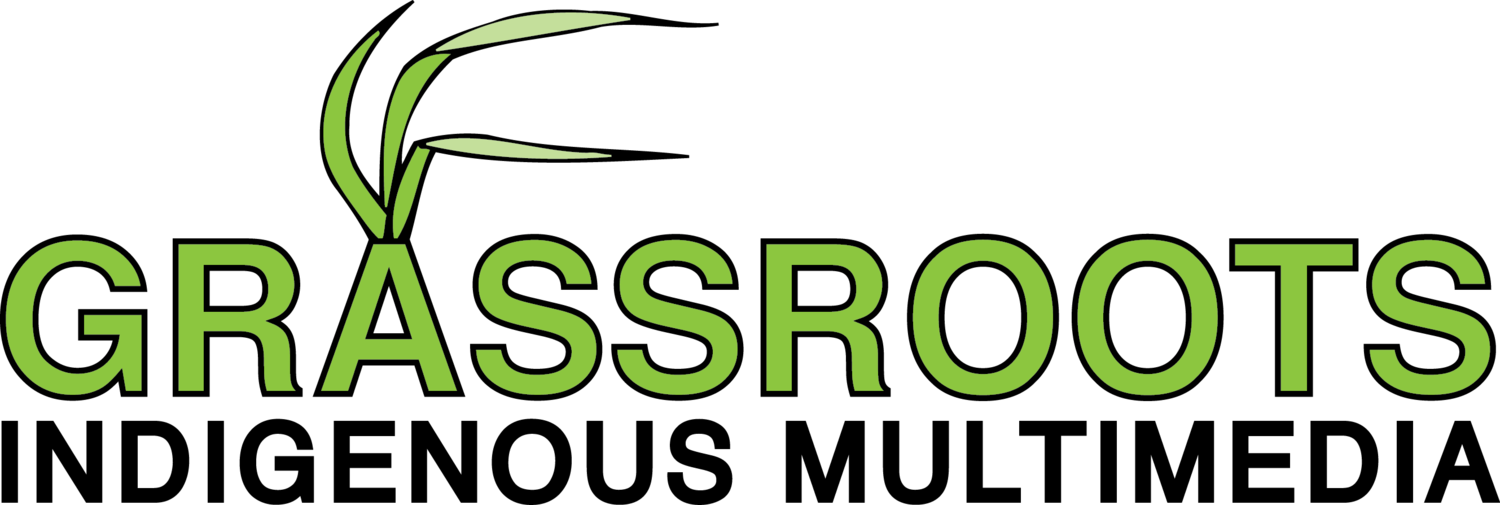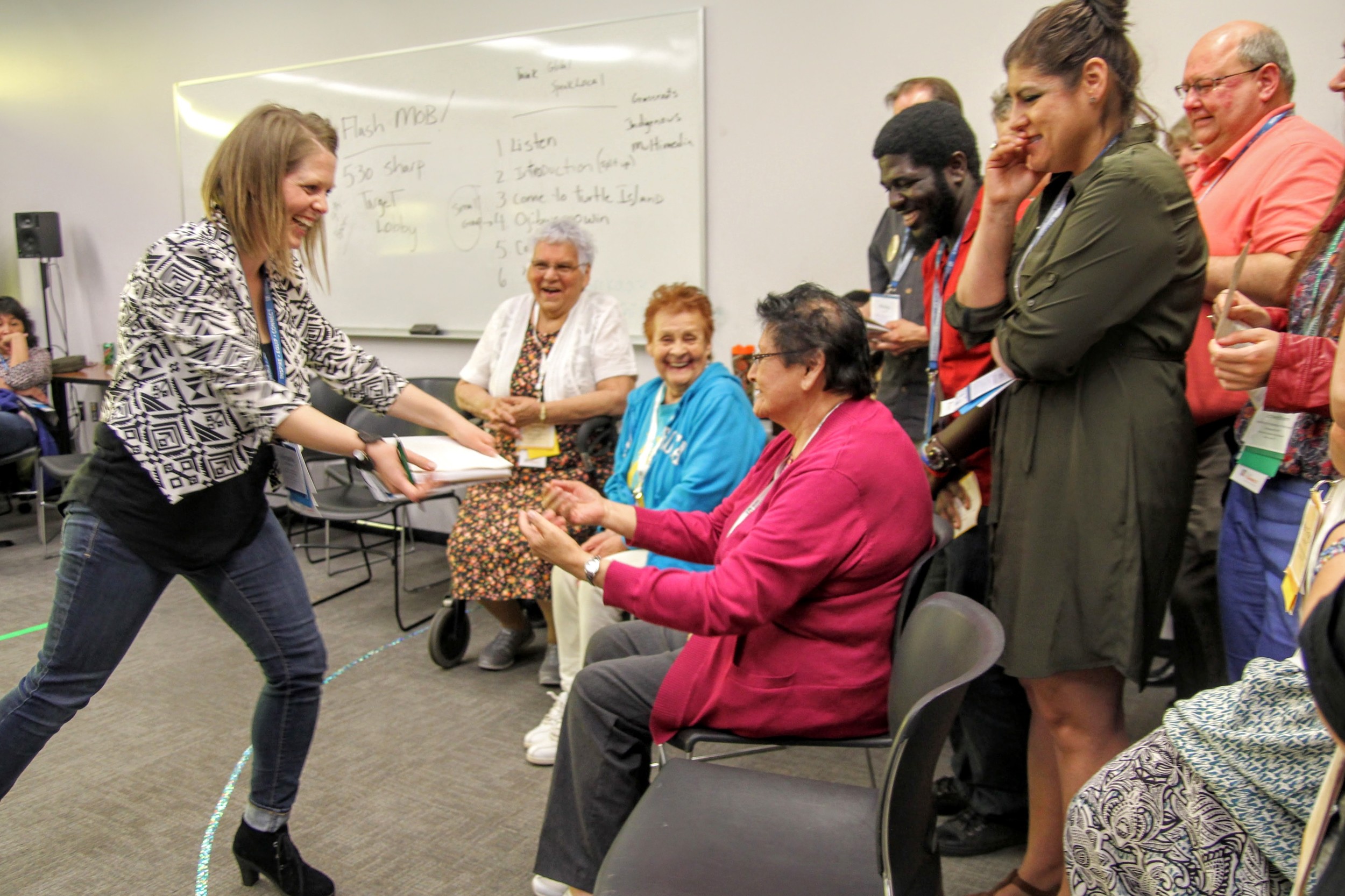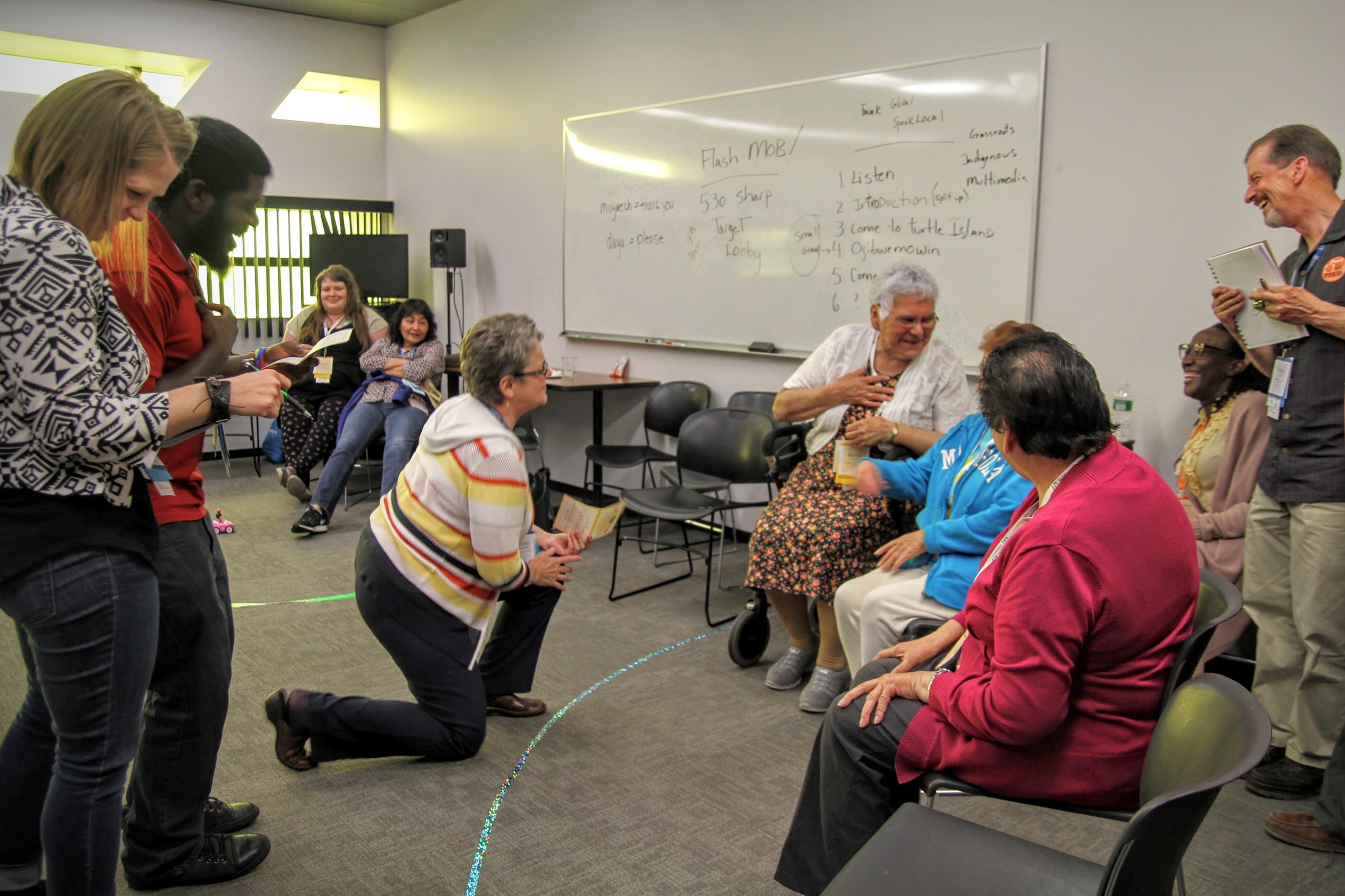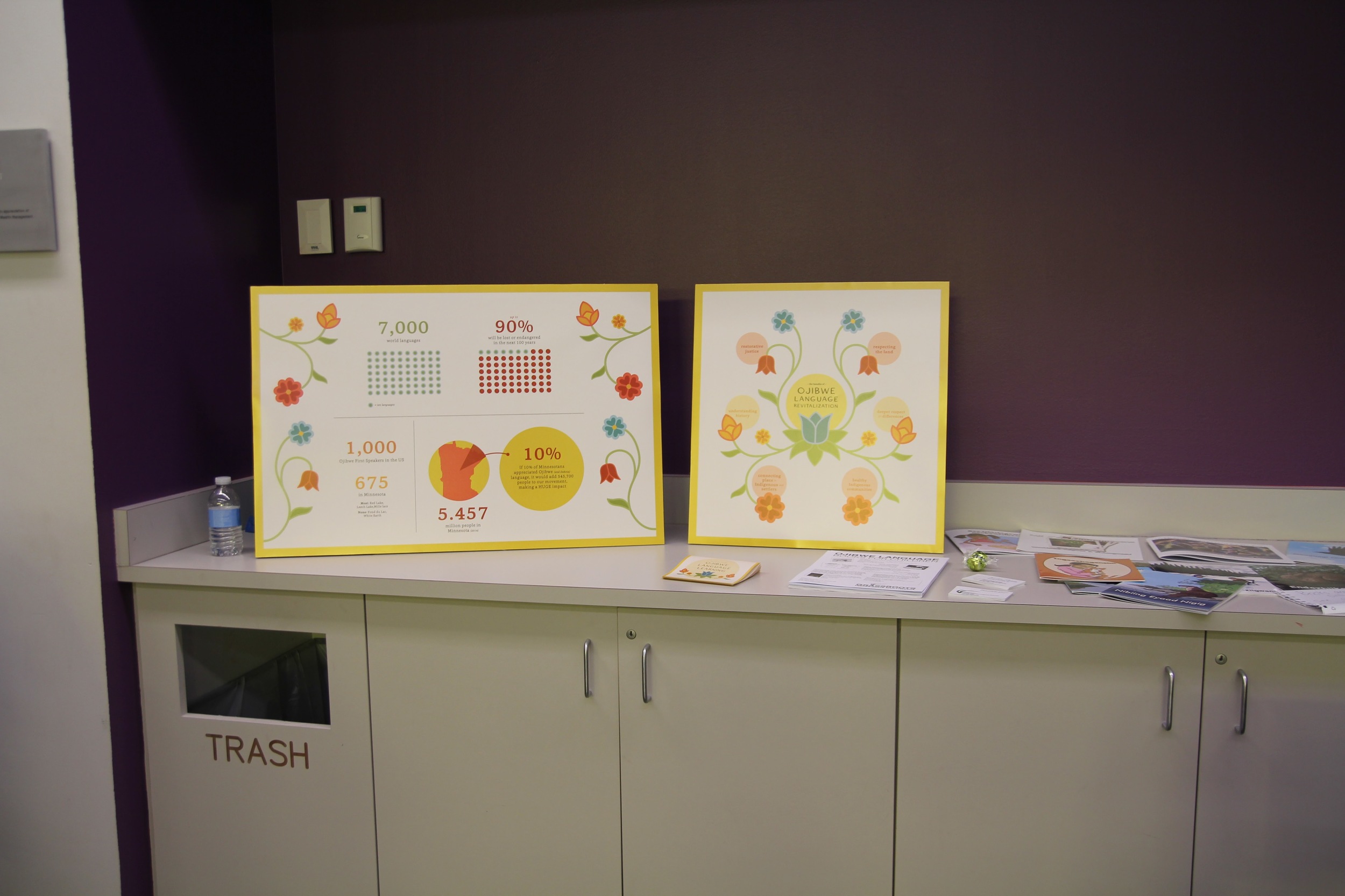About Us
Grassroots Indigenous Multimedia (GIM) is a nonprofit organization established in 2000 by veteran tribal school teachers Mary Hermes (LCO Ojibwe community member) and Kevin Roach (Bad River Ojibwe) to aid in the efforts of the Ojibwe language revitalization movement through creating and distributing high quality indigenous language materials. We have grown to a permanent staff of four, 15 elder/speaker consultants, and 2–3 graduate student "research fellow" positions per academic year.
Using tech in innovative ways, Grassroots Indigenous Multimedia aims to help close the gap between those who are trying to learn and the speakers of our indigenous languages. Since our founding, we have developed a strong base of knowledge for documenting elder language and creating accessible learning media for language regeneration. We have developed over 20 picture books, based on Ojibwe conversational archives. In this way, we are re-creating but still responsive to the way past generations spoke and thought.
Staff
Mary Hermes, Ph.D., executive director, founder
Kevin Roach, artistic director, founder
Anangookwe Hermes-Roach, lead designer & programmer
Jordyn Flaada, language specialist
Board
Margaret Ann Noodin, Ph.D. (Board Chair), University of Wisconsin, Milwaukee
Kendall King, Ph.D., University of Minnesota, Twin Cities
Megan Bang, Ph.D., University of Washington, Seattle
Carla Miller, Lac Courte Oreilles Ojibwe School
Isabelle Trotterchaude, student
Grassroots Indigenous Multimedia IRS Letter of Non-Profit Status
A copy of Grassroots Indigenous Multimedia's annual Form 990 is available to the public on request.
Projects
Reclaim! Game
We are currently developing Reclaim!, a point-and-click adventure game about a young girl (Miskwaa) who falls asleep in the woods and wakes up in a mysterious dream place where time and place, the spiritual and the physical all blend together. Miskwaa must use her wits, her teachings and her Ojibwe language skills to find her way home.
What makes Reclaim! unique is that it presents an Ojibwe language immersion environment while drawing on Ojibwe culture in the context of play. Reclaim! isn’t so much a “language learning” game as it is a “language use” game. Currently there are not many contexts for learners to use their language skills; they are often limited to classroom and ceremonial context in their language use. Reclaim! aims to provide an immersion experience that’s entertaining, not work or ceremony, in a setting that draws on modern and traditional Ojibwe culture. We as a team aren’t trying to preserve the language or the culture, rather we want to add to the growing contemporary landscape of indigenous media. The ultimate goal is to create a play experience that feels wholly Ojibwe, from the language to the setting.
Red Lake Nation
GIM staff are currently collaborating with language educators, advocates, and administrators in Red Lake to grow bilingual language and literacy among young speakers. The momentum in the community is growing, and through our work with teachers and Elders, we are finding new ways to support Ojibwe culture and language in a wide variety of school settings through the creation of books, classroom materials, online tools, digital resources, and assessments.
White Earth Ojibwe Tribal Education Department
A partner for more than six years, we regularly work with White Earth's Head Start teachers and aides (about 50) to build their Ojibwe language and provide activities and resources they can learn and use with their little ones.
We also worked with White Earth to establish oral proficiency benchmarks. This collaborative effort is intended help the Ojibwe language classes across schools shift to a focus on spoken uses of the language, rather than teaching it as a school subject.
Independent School District 196
With the help of teachers and students in ISD 196, we are developing a series of storybooks and digital companion resources that align with state standards for the teaching of social studies through a critical and Indigenous lens.
Archives and Books
We continue to produce story books from the archives of first speaker language. Check out our newest titles under the 'products' tab: Babaamaadiziwin (a journey through time and across local waterways), Gitigaanangidwaa Opiniig (thriving in community through distributed resources), and Gii-tagoshinowaad Mayagi-waagoshag (treaty rights told through the eyes of a community of foxes).
Documentation
With the success of immersion schools, we have a unique opportunity to witness and understand a wide variety of communicative practices and their development. This work can aid in the efforts of preschools and daycares to use Ojibwe daily, and can provide better support for the growing number of immersion teachers.
Anti-racism and the Ojibwe Language
With support from the Bush Foundation, we are engaged in a new and experimental initiative this year. We are reaching out to and creating discussion spaces to engage White and non-native people of color in Minnesota in considering their responsibilities to the indigenous languages of this land. We want to mobilize guilt or a sense of immobility many feel about the current situation of Native Americans into action for language revitalization and anti-racism.
The language revitalization movement is based partially on numbers. That is to say, if enough people start to use even a little bit of Ojibwe, it helps to shift the general awareness and status of the language. Think of how many Hawaiian words you know and use if you go to Hawaii. This shift in consciousness is a part of the movement.
GIM's session at the 2016 Bush Foundation's bushCONNECT Conference, "Speak Local: Anti-Racism through Ojibwe Language Learning". Participants had to learn enough Ojibwe to ask Elders and Indigenous participants if they could "come in" to Turtle Island.









